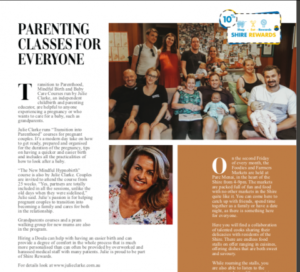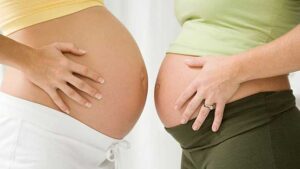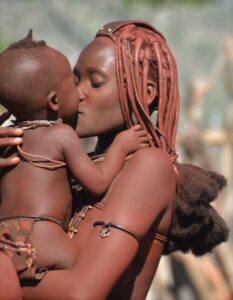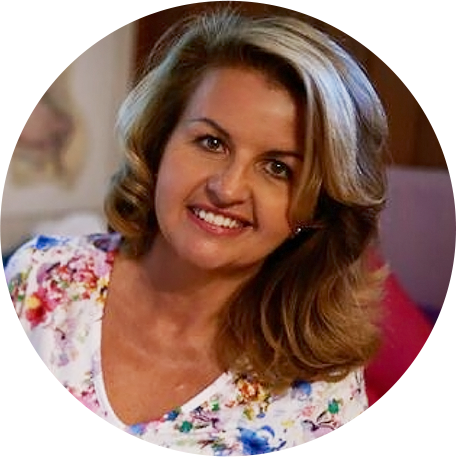Healthy newborns enter the world well hydrated and remain so if breastfed exclusively, day and night, even in the hottest, driest climates.
Nevertheless, the practice of giving infants water during the first six months-the recommended period for exclusive breastfeeding-persists in many parts of the world, with dire nutritional and health consequences.
This FAQ discusses these consequences and the role of breastfeeding in meeting an infant’s water requirements.
Why is exclusive breastfeeding recommended for the first six months?
International guidelines recommend exclusive breastfeeding for the first six months based on scientific evidence of the benefits for infant survival, growth, and development.
Breastmilk provides all the energy and nutrients that an infant needs during the first six months.
Exclusive breastfeeding reduces infant deaths caused by common childhood illnesses such as diarrhea and pneumonia, hastens recovery during illness, and helps space births.
Is early supplementation with water a common practice? And if so, why?
The practice of giving water and other liquids such as teas, sugar water, and juices to breastfed infants in the first months is widespread throughout the world. This practice often begins in the first month of life.
Research conducted in the outskirts of Lima, Peru showed that 83 percent of infants received water and teas in the first month. Studies in several communities of the Gambia, the Philippines, Egypt, and Guatemala reported that over 60 percent of newborns were given sugar water and/or teas.
The reasons given for water supplementation of infants vary across cultures. Some of the most common reasons are:
* necessary for life
* quenches thirst
* relieves pain (from colic or earache)
* prevents and treats colds and constipation
* soothes fretfulness
Cultural and religious beliefs also influence water supplementation in early infancy.
Proverbs passed down from generation to generation advise mothers to give babies water.
Water may be viewed as the source of life-a spiritual and physiological necessity.
Some cultures regard the act of offering water to the newborn as a way of welcoming the child into the world.
The advice of health care providers also influences the use of water in many communities and hospitals. For example, a study in a Ghanaian city found that 93 percent of midwives thought that water should be given to all infants beginning on the first day of life.
In Egypt many nurses advised mothers to give sugar water after delivery.
How do breastfed babies get enough water?
Depending on temperature, humidity, and the infant’s weight and level of activity, the average daily fluid requirement for healthy infants ranges from 80-100 ml/kg in the first week of life to 140-160 ml/kg between 3-6 months.
These amounts are available from breastmilk alone if breastfeeding is exclusive and unrestricted (on-demand day and night) for two reasons:
Breastmilk is 88 percent water.
The water content of breastmilk consumed by an exclusively breastfed baby meets the water requirements for infants and provides a considerable margin of safety.
Even though a newborn gets little water in the thick yellowish first milk (colostrum), no additional water is necessary because a baby is born with extra water.
Milk with higher water content usually “comes in” by the third or fourth day.
Breastmilk is low in solutes.
One of the major functions of water is to flush out, through the urine, excess solutes.
Dissolved substances (for example, sodium, potassium, nitrogen, and chloride) are referred to as solutes.
The kidneys-though immature up to the age of approximately three months-are able to concentrate excess solutes in the urine to maintain a healthy, balanced body chemistry.
Because breastmilk is low in solutes, the infant does not need as much water as an older child or adult.
What about infants in hot, dry climates?
Water in breastmilk exceeds the infant’s water requirements in normal conditions and is adequate for breastfed infants in hot, dry climates.
Studies indicate that healthy, exclusively breastfed infants in the first six months of life do not require additional fluids even in countries with extremely high temperatures and low humidity.
Solute levels in the urine and blood of exclusively breastfed babies living in these conditions were within normal ranges, indicating adequate water intakes.
Can giving water to an infant before six months be harmful?
Offering water before the age of six months can pose significant health hazards.
Water supplementation increases the risk of malnutrition.
Displacing breastmilk with a fluid of little or no nutritional value can have a negative impact on an infant’s nutritional status, survival, growth, and development.
Consumption of even small amounts of water or other liquids can fill an infant’s stomach and reduce the baby’s appetite for nutrient-rich breastmilk.
Studies show that water supplementation before the age of six months can reduce breastmilk intake by up to 11 percent.
Glucose water supplementation in the first week of life has been associated with greater weight loss and longer hospital stays.
Water supplementation increases the risk of illness.
Water and feeding implements are vehicles for the introduction of pathogens.
Infants are at greater risk of exposure to diarrhea causing organisms, especially in environments with poor hygiene and sanitation.
In the least developed countries, two in five people lack access to safe drinking water.
Breastmilk ensures an infant’s access to an adequate and readily available supply of clean water.
Research in the Philippines confirms the benefits of exclusive breastfeeding and the harmful effect of early supplementation with non-nutritive liquids on diarrheal disease.
Depending on age, an infant was two to three times more likely to experience diarrhea if water, teas, and herbal preparations were fed in addition to breastmilk than if the infant was exclusively breastfed.
Should water be given to breastfed infants who have diarrhea?
In the case of mild diarrhea, increased frequency of breastfeeding is recommended.
When an infant has moderate to severe diarrhea, caregivers should immediately seek the advice of health workers and continue to breastfeed, as recommended in the Integrated Management of Childhood Illness (IMCI) guidelines.
Infants that appear dehydrated may require Oral Rehydration Therapy (ORT), which should only be given upon advice of a health worker.1 1 Oral Rehydration Solution (ORS), used in ORT, helps replace water and electrolytes lost during episodes of diarrhea. Super ORS, with a carbohydrate base of rice or cereal for better absorption, has been developed to improve treatment.
How can programs address the common practice of water supplementation?
To address the widespread practice of water supplementation in early infancy, program managers should understand the cultural reasons for this practice, analyze existing data, conduct household trials of improved practices, and develop effective communication strategies for targeted audiences.
Health care providers and community volunteers need to be informed that breast-milk meets the water requirements of an exclusively breastfed baby for the first six months.
They may also require training on how to communicate messages and negotiate behavior change.
Examples of messages developed in breastfeeding promotion programs that address local beliefs and attitudes about the water needs of infants.
Providing accurate information, tailoring messages to address the beliefs and concerns of different audiences, and negotiating with mothers to try out a new behavior can help establish exclusive breastfeeding as a new community norm.
Communicating the Message “Don’t Give Water”
The following messages have been used in programs to convince mothers, their families, and health workers that exclusively breastfed infants do not need to be given water in the first six months.
The most effective ways of communicating the messages depend on the audience and the practices, beliefs, concerns, and constraints to good practices in a particular setting.
Make clear the meaning of exclusive breastfeeding
* Exclusive breastfeeding means giving only breastmilk. This means no water, liquids, teas, herbal preparations, or foods through the first six months of life. (It is important to name the drinks and foods commonly given in the first six months. One program found that women did not think the advice “do not give water” applied to herbal teas or other fluids.) Take ideas often associated with water and apply them to colostrum
* Colostrum is the welcoming food for newborns. It is also the first immunization, protecting a baby from illness.
* Colostrum cleans the newborn’s stomach. Sugar water is not needed.
Explain why exclusively breastfed babies do not need water
* Breastmilk is 88 percent water.
* Every time a mother breastfeeds, she gives her baby water through her breastmilk.
* Breastmilk has everything a baby needs to quench thirst and satisfy hunger. It is the best possible food and drink that can be offered a baby so the baby will grow to be strong and healthy.
Point out the risks of giving water
* Giving water to babies can be harmful and cause diarrhea and illness. Breastmilk is clean and pure and protects against disease.
* An infant’s stomach is small. When the baby drinks water, there is less room left for the nourishing breastmilk that is necessary for the infant to grow strong and healthy.
* Link good breastfeeding practices to adequate fluid intake
* When a mother thinks her baby is thirsty, she should breastfeed immediately. This will give the baby all the water that is needed.
* The more often a woman breastfeeds, the more breastmilk is produced, which means more water for the baby.
http://rehydrate.org/breastfeed/faq-exclusive-breastfeeding.htm
Website http://www.linkagesproject.org/
Ask Dr Sears
In breastfed babies, not only is extra water unnecessary, giving bottles of water to quench baby’s thirst may also lessen the desire to breastfeed. This will interfere with the balance between mother’s milk supply and baby’s demand. Bottles of water are also likely to cause nipple confusion. A baby who is too warm or thirsty, but not hungry, can satisfy his need for more water by feeding more frequently and just enough to get the watery foremilk, but not necessarily the creamier hindmilk. Breastfeeding babies are great self-thirst-quenchers.
